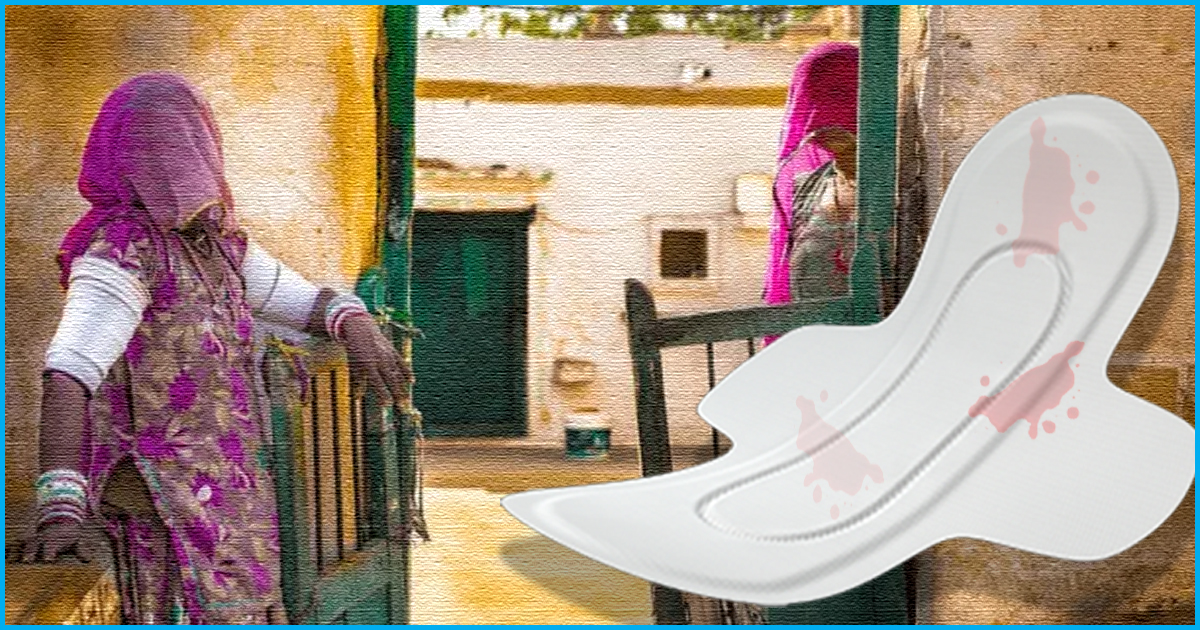
Height Of Taboo: In Uttarakhand, Menstruating Women Were Kept Confined In Govt-Funded Building
17 Jan 2019 4:47 AM GMT
Let us face it, the social prejudice around women periods is not yet over. At the time when women in urban settings are becoming more vocal about something that is a natural phenomenon for a woman’s body, women in rural India are still socially boycotted, shamed for periods. The barbaric thought of considering women untouchable while they are on their periods is still prevalent in most of the places. In many places, women are forced to leave their homes and stay in clumsy places as they are not considered fit to stay at home. In one such incident has come up from Uttarakhand’s Ghurchum village, Champawat district, where a government-funded building has been constructed where women were sent during their menstrual cycle. After the news reached the district’s DM’s notice, he passed the order to shut the building.
The custom of sending women of the village to the building, which was in the practice for a very long time only came to light after a few villagers complained about it to the District Magistrate. Magistrate received the complaints during the monthly complaints session that the DM takes periodically.

According to The Times of India, the complainant, Ramesh Chandra Joshi, a resident of Ghurchum village in Champawat had filed the complaint on January 14. He told the DM that a “hut” has been built in their village using government funds. He added that the hut is being used to confine women during their periods.
According to The Logical Indian sources, the building was constructed using government funds in 2016-2017 at the cost of Rs 2 lakh. Rajaswala Kendra – the one storey building which is quite small in size and does not even have proper facilities was made, as to make women stay during their periods. The sources further told us that the funds from the state 14th finance commission were used to construct the building. Sources also told us that the government funds were misused to construct this building.
Mukesh Joshi, Gram Pradhan of Ghurchum, admitted that the one-room hut was built. But he claimed the building is a ‘Jan Milan Kendra’ (public meet centre) and “no woman had ever taken shelter there,” reported The Times Of India.
DM was shocked to know about the “menstrual-hut”
While talking to the News18, District Magistrate, Ranbir Chauhan said, “I was shocked to know about ‘menstruating centre’ in the remote Ghurchum village. The complainants failed to justify why women were to be kept in the centre and whether they will be given sanitary pads.”
As per News 18, after all the members of the Panchayat agreed, the village panchayat passed a provision which stated that the women would have to go to this building when they would be on their periods.
He added that the building was constructed from the funds meant for the development of Panchayat.
Calling the entire incident bizarre, he said, “The centre is being used to keep menstruating women, it is against the basic concept of fundamental rights.”
He added that a team of the officials would find out whether more such centres exist in the district. He further added that he would also order a probe to find if the funds allocated by the 14th finance commission were misused in the construction of the centre in question.
This is not the first incident in Uttarakhand, in which menstruating women were subjected to discrimination. Earlier, in November, last year it was reported that parents in Rautgara village in Pithoragarh tehsil in Uttarakhand were refraining themselves from sending their daughters to school. The young girls of the village are stopped from going to school during the 5 days of their period.
Awareness about menstruation
Even in India, many communities believe that a menstruating woman is ‘impure’. A 2016 study by the TATA Institute of Social Science (TISS) found that eight of ten Indian girls are not allowed to enter religious shrines when they are on their period, six out of ten girls are not permitted to touch food in the kitchen and, three out of ten are forced to sleep in a separate room.
In our urban cities too, sanitary pads are wrapped in black plastic bags or paper before being sold because of the shame associated with periods. Even girls feel embarrassed to talk about their periods despite coming from good schools and receiving the best education because, at home, they are not allowed to enter the ‘puja’ room or the kitchen when it’s their ‘time of the month’.
The prevalence of the taboo even in the 21st century can be attributed to low awareness about menstrual hygiene in both men and women, low levels of education and understanding of puberty and reproductive health.
The Logical Indian hopes that awareness is created about menstruation in the village so the girls can continue their education unhindered.
Also Read: Uttarakhand: Due To Temples On The Way, Menstruating Girls Stopped From Going To School
 All section
All section













